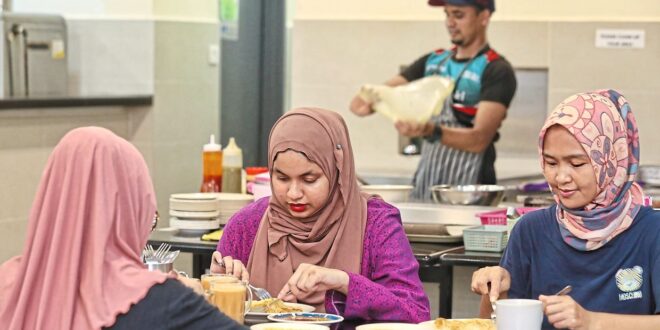JOHOR BARU: More people seem to be turning to roti canai for lunch, especially in the city centre here, says a restaurant operators association.
Johor Indian Muslim Entrepreneurs Association secretary Hussein Ibrahim said 24-hour eateries or mamak restaurants used to only serve roti canai for breakfast as the operators wanted to focus on nasi kandar or mixed rice dishes during lunch hour.
“After the Covid-19 movement control order was implemented, there was an increase in customers requesting roti canai at lunchtime.
“So, our members are serving roti canai round the clock due to the rising demand.
“The customers said they prefer flat bread over mixed rice because it is much cheaper,” Hussein said.
He said customers would pay about RM5 for two pieces of roti kosong, priced between RM1.20 and RM1.50 each, and a drink.
“I believe the increased demand for roti canai is due to the customers wanting to save money. The dish is more affordable compared to a plate of mixed rice, which could cost around RM10 or RM12,” he said.
Hussein added that many customers would order roti canai for dinner as well.
Checks at several 24-hour eateries found that roti canai has become an increasingly popular option among the lunch crowd over the past few years.
A manager at one of the restaurants, who only wanted to be known as Rafi, said their customers favoured roti canai over other items such as nasi kandar due to the price difference.
“Because of this, we have cut down on the quantity of dishes we serve daily to prevent waste,” he added.
State health and environment committee chairman Ling Tian Soon said the rising cost of living should not be an excuse for consumers to make unhealthy food choices.
“The Health Ministry also encourages the people to keep to a balanced diet or ‘suku-suku-separuh’ (quarter-quarter-half) or 3S dietary recommendation.
“This formula calls for a quarter of the meal to be carbohydrates, a quarter to be protein or meat, and half the plate to be filled with vegetables or fruit,” he said.
According to Ling, maintaining a balanced diet and engaging in regular exercise can help prevent diseases and alleviate the strain on the already overcrowded public healthcare facilities.
He said most of the patients are those suffering from non-communicable diseases such as heart disease, diabetes and stroke, which were brought on by an unhealthy diet, physical inactivity and alcohol and tobacco use, among others.
 BeritaKini.biz Berita Viral Terkini di Malaysia
BeritaKini.biz Berita Viral Terkini di Malaysia





